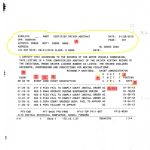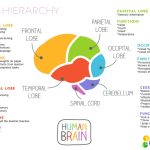Mastering Concrete And Abstract Nouns Worksheet: Supercharge Your Language Skills Today!
Concrete and Abstract Nouns Worksheet: Improve Your Grammar Skills
Greetings, Smart Readers! Are you looking to enhance your grammar skills? If so, you’ve come to the right place. In this article, we will explore the world of concrete and abstract nouns worksheet, providing you with valuable insights and exercises to improve your understanding. So let’s dive in and discover the wonders of concrete and abstract nouns!
Introduction
Before we delve into the details, let’s start with a brief overview of concrete and abstract nouns. Nouns are words that represent people, places, things, or ideas. Concrete nouns refer to tangible objects that can be seen, heard, smelled, tasted, or touched. On the other hand, abstract nouns represent concepts, emotions, or qualities that cannot be perceived through the senses. Understanding the difference between these two types of nouns is essential for effective communication and writing.
1 Picture Gallery: Mastering Concrete And Abstract Nouns Worksheet: Supercharge Your Language Skills Today!

Now, let’s take a closer look at concrete and abstract nouns worksheet. This worksheet is designed to help you identify and differentiate between concrete and abstract nouns. By practicing with various exercises and examples, you will develop a strong grasp of these grammatical concepts.
What are Concrete and Abstract Nouns?
Concrete Nouns: Concrete nouns are tangible objects that can be perceived through the senses. They include items such as table, dog, and car. Concrete nouns provide specific details and allow readers to visualize the subject matter.

Image Source: liveworksheets.com
Abstract Nouns: Abstract nouns, on the other hand, represent intangible concepts, emotions, or qualities. Examples of abstract nouns include love, happiness, and bravery. These nouns convey ideas and feelings rather than physical objects.
By understanding the distinction between concrete and abstract nouns, you will be able to use them effectively in your writing, adding depth and precision to your language.
Who Can Benefit from Concrete and Abstract Nouns Worksheet?
Concrete and abstract nouns worksheet is beneficial for various individuals, including students, language learners, and writers. Students who are learning grammar can utilize this worksheet to practice and reinforce their understanding of nouns. Language learners aiming to improve their English language skills can also benefit from the exercises provided in the worksheet. Additionally, writers looking to enhance their descriptive writing can use concrete and abstract nouns to create vivid and engaging content.
When and Where to Use Concrete and Abstract Nouns?
Concrete and abstract nouns have specific applications in writing. Concrete nouns are essential when describing specific details or providing vivid imagery. For example, instead of saying The car was fast, you can use a concrete noun to say The Ferrari zoomed past. On the other hand, abstract nouns are useful for conveying emotions, concepts, or qualities that cannot be experienced through the senses. For instance, instead of saying He was happy, you can use an abstract noun to say He exuded pure happiness.
These nouns can be utilized in various contexts, including creative writing, professional documents, academic essays, and everyday conversations. Mastering the usage of concrete and abstract nouns will enhance your communication skills and make your writing more impactful.
Why Should You Practice with Concrete and Abstract Nouns Worksheet?
Practicing with concrete and abstract nouns worksheet offers several benefits. Firstly, it helps you develop a strong understanding of the difference between concrete and abstract nouns. This knowledge will improve your grammar skills and enable you to express your thoughts more accurately. Secondly, the exercises provided in the worksheet allow you to apply your knowledge and reinforce the concepts. By actively engaging with the material, you will internalize the rules and principles of concrete and abstract nouns.
Moreover, practicing with concrete and abstract nouns worksheet enhances your writing skills. You will learn how to choose the right nouns to convey your message effectively, resulting in clearer and more engaging content. Whether you are a student, language learner, or writer, this practice will undoubtedly benefit your language proficiency.
How to Make the Most of Concrete and Abstract Nouns Worksheet?
To make the most of the concrete and abstract nouns worksheet, follow these tips:
Study the Definitions: Familiarize yourself with the definitions of concrete and abstract nouns to understand their characteristics and differences.
Complete the Exercises: Work through the exercises provided in the worksheet to practice identifying concrete and abstract nouns in different contexts.
Seek Feedback: Ask a teacher, tutor, or mentor to review your answers and provide feedback. This will help you identify any areas for improvement.
Apply in Writing: Use concrete and abstract nouns in your own writing to enhance your descriptive abilities. Experiment with different contexts and styles to explore the full potential of these nouns.
Review and Revise: Continuously review and revise your work to refine your understanding and ensure accuracy in your usage of concrete and abstract nouns.
Pros and Cons of Concrete and Abstract Nouns Worksheet
As with any learning resource, there are pros and cons to using a concrete and abstract nouns worksheet. Let’s explore them in detail:
Pros:
1. Enhanced Understanding: The worksheet provides a structured approach to learning, allowing you to grasp the concepts of concrete and abstract nouns more effectively.
2. Practical Application: By practicing with various exercises, you will develop the skills to apply concrete and abstract nouns accurately in your writing.
3. Improved Writing Skills: Using concrete and abstract nouns appropriately will enhance your descriptive writing skills, making your content more engaging and impactful.
Cons:
1. Possible Limitations: The worksheet may not cover all possible scenarios or contexts where concrete and abstract nouns can be used.
2. Varied Learning Styles: Some individuals may find it challenging to learn solely through worksheets and may benefit from additional resources or interactive activities.
Ultimately, the pros of using a concrete and abstract nouns worksheet far outweigh the cons. With dedication and practice, this resource will undoubtedly improve your grammar skills and enhance your writing abilities.
Frequently Asked Questions (FAQs)
1. Can concrete nouns be abstract?
No, concrete nouns represent tangible objects, while abstract nouns represent intangible concepts or qualities.
2. Are there any exceptions to the rules of concrete and abstract nouns?
While most nouns can be categorized as either concrete or abstract, some nouns can function as both, depending on the context. For example, the word bank can refer to a physical building or the concept of a financial institution.
3. How can I improve my understanding of concrete and abstract nouns?
Aside from practicing with a concrete and abstract nouns worksheet, reading extensively and analyzing various texts will expose you to different examples and usage of these nouns. Additionally, seeking guidance from teachers or language experts can provide valuable insights.
4. Can I use concrete and abstract nouns interchangeably?
No, concrete and abstract nouns have distinct purposes and convey different meanings. It is essential to use them appropriately to ensure accurate and effective communication.
5. What are some common mistakes to avoid when using concrete and abstract nouns?
Some common mistakes include using abstract nouns when concrete nouns are more appropriate, and vice versa. Additionally, be cautious of using vague or ambiguous abstract nouns that may confuse your readers.
Conclusion
Congratulations, Smart Readers! You have now gained a comprehensive understanding of concrete and abstract nouns and their significance in written communication. By practicing with a concrete and abstract nouns worksheet, you can further enhance your grammar skills and become a more effective writer. Remember to apply your knowledge in your everyday writing and seek feedback to continually improve. With dedication and practice, you will master the art of using concrete and abstract nouns to create powerful and engaging content.
Now, it’s time to take action! Download a concrete and abstract nouns worksheet today and embark on your journey towards grammatical excellence.
Final Remarks
Learning grammar concepts, such as concrete and abstract nouns, is a valuable investment in your language skills. While worksheets provide a structured approach to practice, it’s essential to supplement your learning with various resources and real-life examples. Embrace the joys of language exploration, and never stop expanding your knowledge. Happy learning!
This post topic: Abstract



